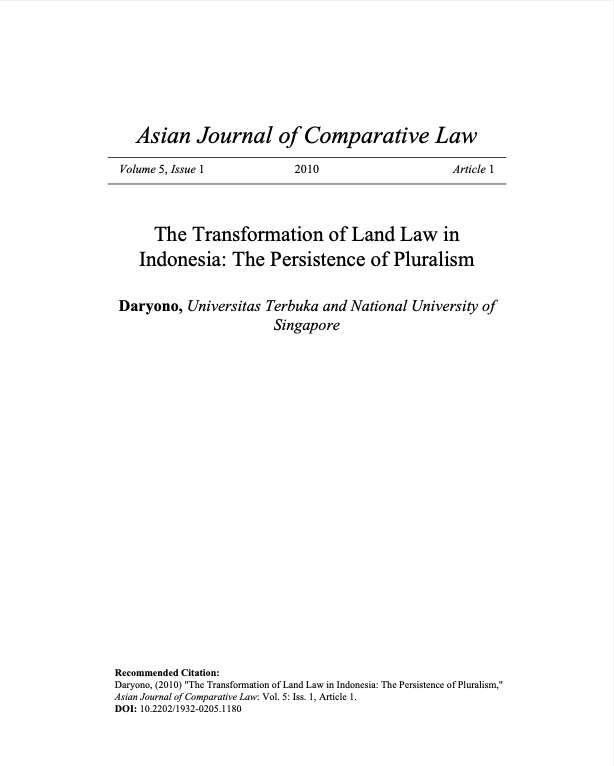Resource information
Transforming a pluralistic tenure system into unified statutory rights has been a major objective of the development of property law in many developing countries. Many law and development scholars have assumed that unified land rights are a pre-condition to development and that a pluralistic tenure land system is a major source of uncertainty and insecurity. This article challenges this commonly held assumption by way of a case study of Indonesia's effort to unify the laws governing land. The author demonstrates that the unification of land law in Indonesia has not resulted in certainty and security of tenure. Instead, this process has been adversely affected by an imprecise private law system, and an inadequate administrative/public law system which has created even more forms of pluralism. The resultant effect of this process is the creation of multiple legal orders governing the current land affairs in Indonesia, such as a formal system, a customary system and a "semi-formal" system.


